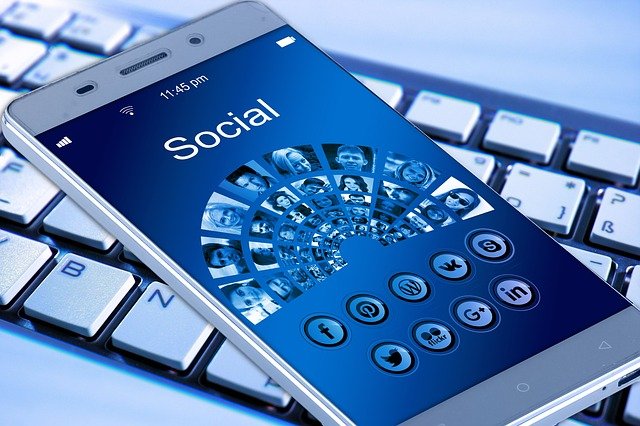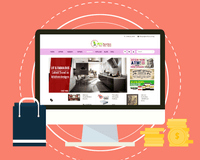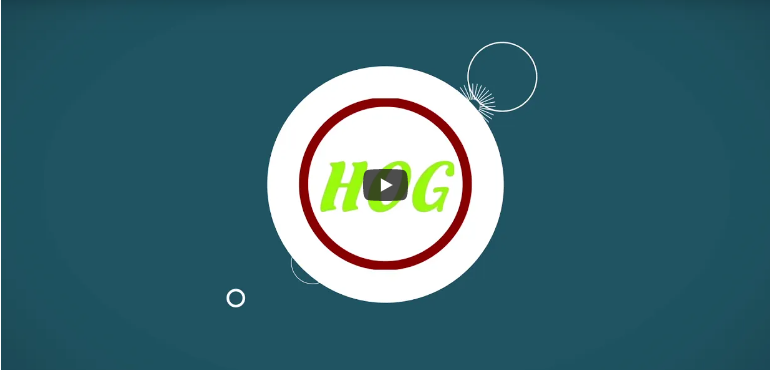This article is part of the HOGDigest editorial series. → Explore HOGDigest
Are there any college students not using social media at all? Probably, there are some, but I do find it tough to remember any. I’m sure you do too.
Social media has stormed into our lives, and college students seem to be the most frequent users. A 2018 Pew Research Center survey found that nearly 45% percent of surveyed teenagers (aged from 13 to 17) are online almost 24/7, and 97% use at least one social media platform, such as Facebook, Instagram, Snapchat, or YouTube. They seem to be trapped in a vicious cycle of never-ending posts, likes and dislikes, and selfies. Astonishing, isn’t it?
No doubt that social media helps connect people providing the kind of opportunities and tools that were beyond our grasp a couple of decades ago. But here’s the problem: college students might not always fathom the different ways in which social media affects them. Not all students are aware of how social media impacts their academic performance and the quality of their lives. At worst, the impact can be truly detrimental with long-term consequences. So, let’s dive in to see what I’m talking about here.
-
Makes it easier to communicate
It goes without saying that social media makes it so much easier for college students to stay in touch with one another. It also helps create groups or communities with common interests or hobbies. In this sense, social media is used for educational purposes as students are able to share best practices, proven sources of information, and valuable reports.
Social networking cuts through geographical borders and helps reach out to those who might not be able to travel physically.
-
Makes it easier to participate
Social media also creates auspicious opportunities for participating in a range of activities, whether it be learning events or virtual social gatherings. Usually, there is a lot going on for students on campus, and it is difficult to keep track of all events.
It is particularly helpful for students who experience exclusion, have chronic illnesses, or have some form of disability. Social media provides opportunities for them to have a say, enjoy interactions with peers, and voice their opinions and concerns.
-
Makes it easier to find things
Students use social media to look for information, data sources, and research materials to complete their college assignments. Tracking these down used to take days and weeks several decades ago, while many are now just one click away.
This becomes particularly important when college students have to complete lengthy assignments or prepare for exams.
-
It is fun
Of course, it is a lot of fun! This is an important consideration. Like any other busy individuals, students need to take a break and decompress once in a while. Maintaining a healthy balance between college studies and extracurricular activities has a direct bearing on students’ overall academic performance.
Social networking can provide opportunities for meaningful interactions and truly fun activities. It’s a great way of managing stress levels and maintaining a healthy study-life balance.
-
It can affect your academic performance
When the use of social media becomes an obsession, students keep using social media platforms at the expense of their studies. This might be a recipe for disaster. College studies require a serious, dedicated approach to learning. Academic excellence is a direct result of hard work, and there are hardly any shortcuts students can afford to make.
As students have to deal with a large number of college assignments, it is natural to feel like “I Hate Writing” time after time. If you are one of them, do not hesitate to get professional assistance from top writers to complete your college assignments with flying colors and at reasonable prices.
-
It can induce you to procrastinate
Overindulgence in social media activities inevitably leads to procrastination. Students staying online for extended periods of time are left with no sufficient time to complete their coursework on time. This leads to inevitable delays, pushed-back deadlines, and disruptions.
Students who fall into the habit of procrastination experience increased levels of stress, guilt, and frustration with themselves and their academic performance.
-
It can affect mental health
When abused, excessive use of social media poses risks to the users’ mental health. At worst, it can lead to depression, isolation, sleep disorders, fatigue, and sustained anxiety. If not addressed timely, these can lead to longer-term mental health issues.
A 2019 survey found that those who spend over three hours a day on social media activities face a higher risk of suffering from mental health issues.
-
It can expose you to risks
Social media users rarely think about this, but they can fall victim to stalking, cyberbullying, or identity fraud. Those who abuse social media platforms pursuing malign and illicit purposes can put you in harm’s way if students are lax about the safety and security measures and precautions.
Often, it is the responsibility of parents and college administrators to educate students about the harmful effects of excessive social media usage.
-
It does not replace face-to-face communication
However obvious or significant the benefits of social media are, never let yourself forget that virtual contact never beats face-to-face communication. It is naive, if not risky, to even try to substitute real-life, in-person interactions for remote, online communication. Both have their advantages and there is no need to replace one with the other unnecessarily.
Final Thoughts
It is hard to overestimate the role of social media in today’s world. It has permeated our lives with ruthless speed and reach. College students seem to be more susceptible to the charms and lures of social media platforms. Indeed, many users turn out to be spending more time in virtual reality than in real life.
As with any other technological achievement, social media comes with pros and cons. If used properly and for the right reasons, it can be a boon. If used excessively and imprudently, it can become a blight. It all adds up to understanding and drawing a line between its benefits and harmful effects. Whether you use social media for fun, for relationships, or for professional purposes, make sure you do not let it put you in harm’s way.
Authors Bio' - Joanne Elliott

Joanne Elliott is a seasoned researcher and professional writer. If you want to know all there is to know about the impact of social media on your academic performance and grades, you cannot miss her articles and blog posts on the role of social media in education. You will find that Joanne writes with authority, deep insights, and a lot of passion. As a researcher, she has also carried out multiple research on the effects of social media on the users’ mental health.































